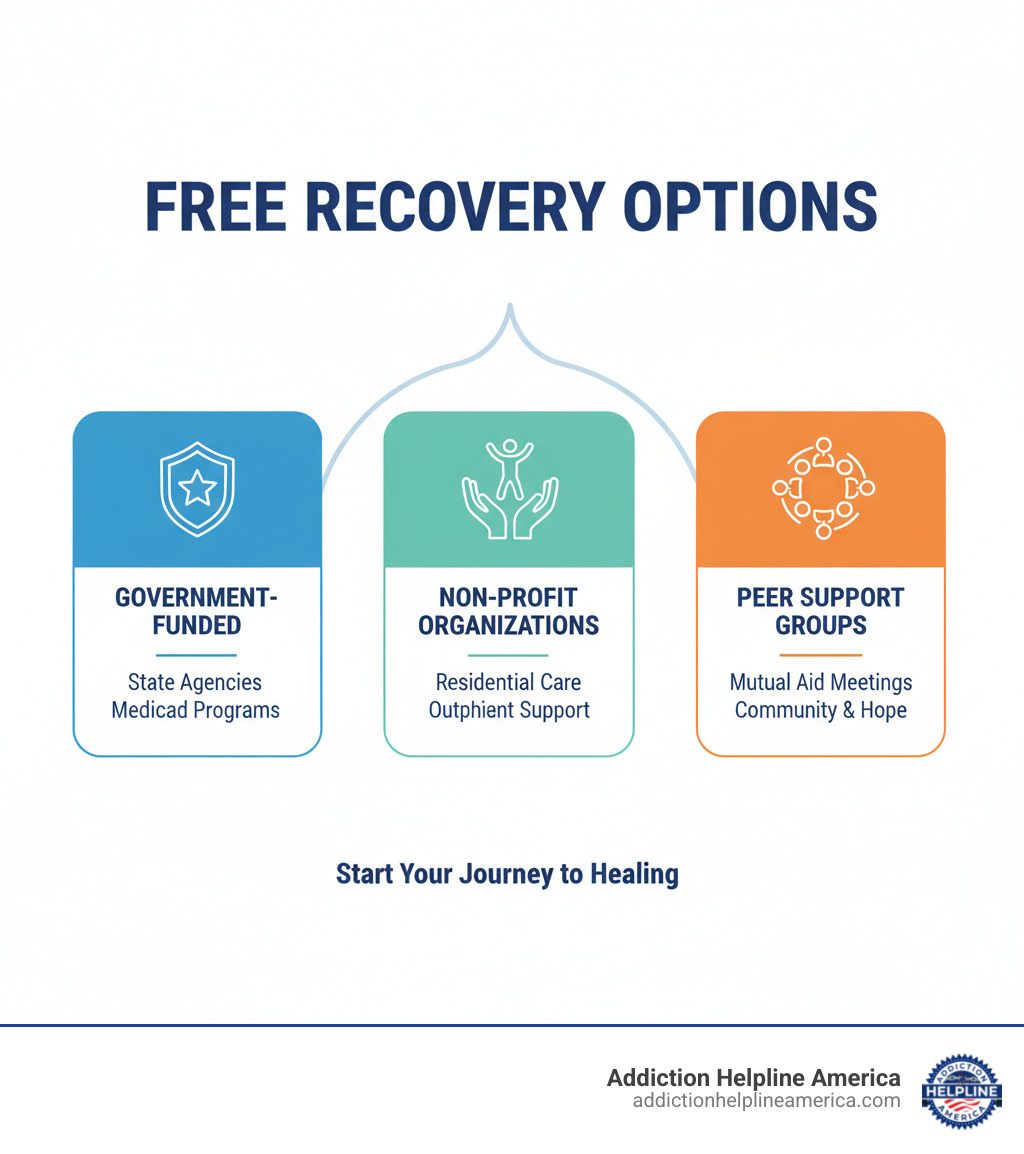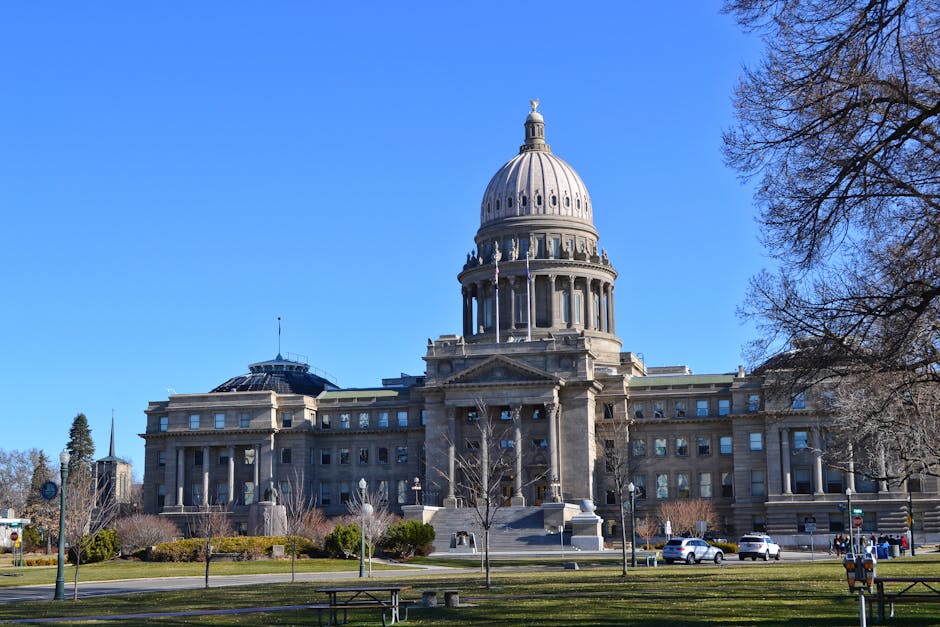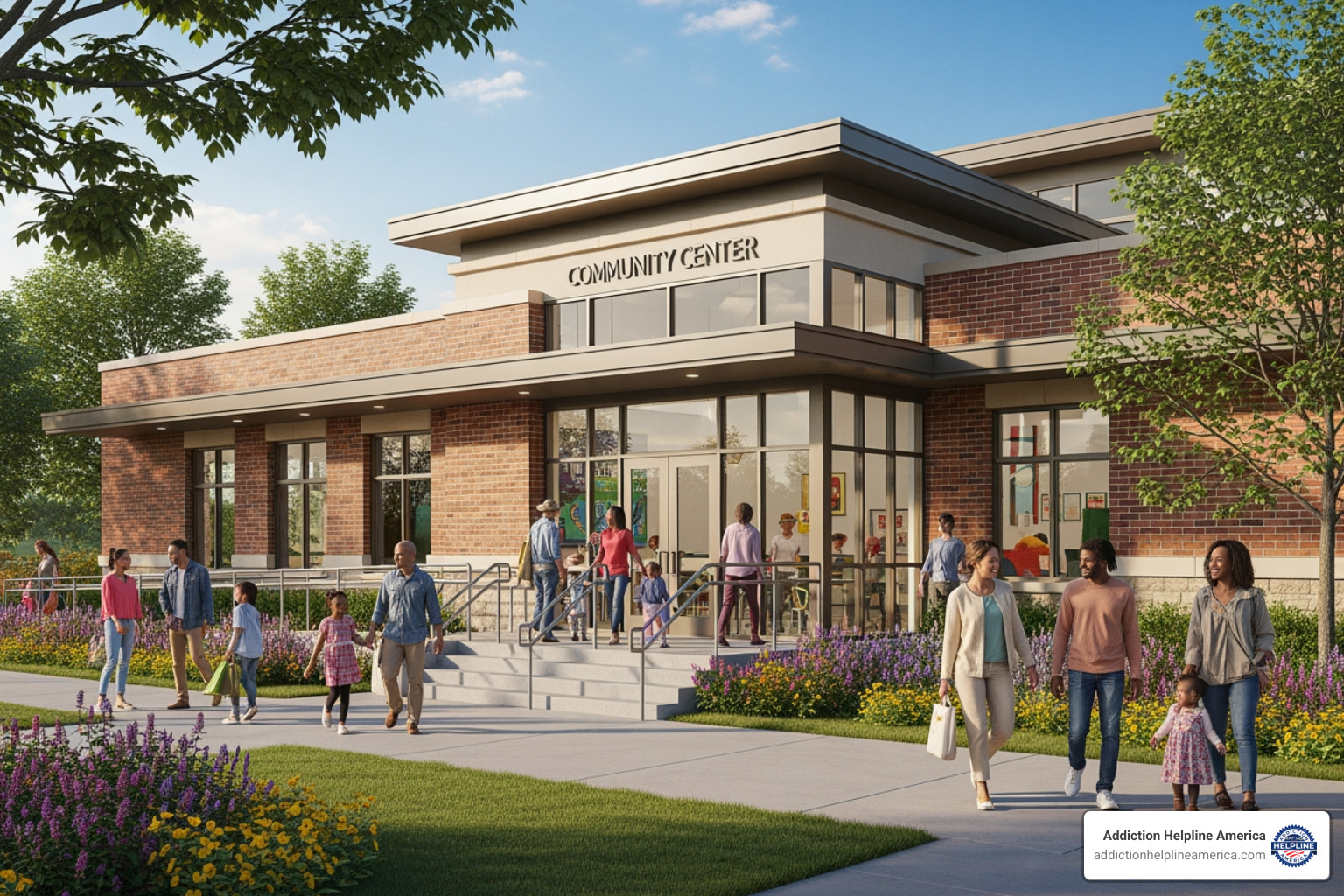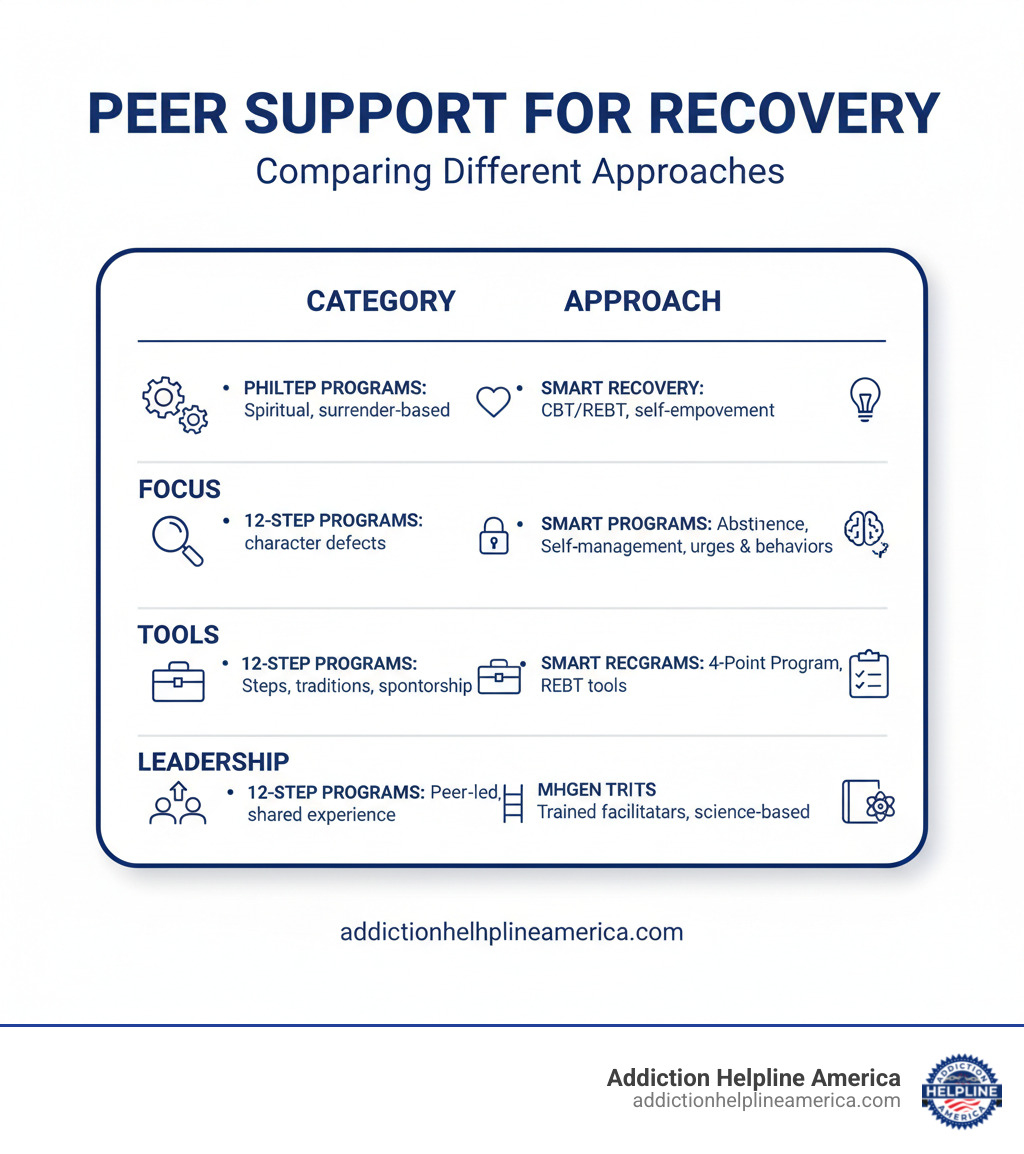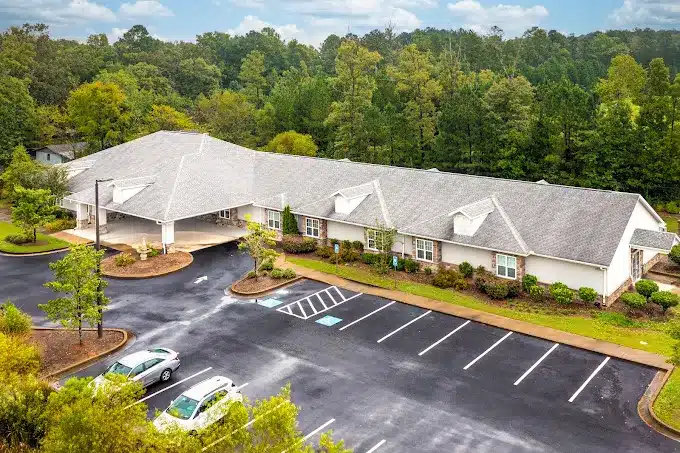
Why Access to Free Addiction Recovery Programs Matters
A free addiction recovery program can be a lifeline for the millions of Americans with a substance use disorder. In 2021, 46.3 million people needed help, but cost is often the biggest barrier. The good news is that effective treatment doesn’t have to be expensive.
This guide covers seven ways to find free or low-cost addiction recovery programs. You can access help through:
- Government-funded programs and Medicaid
- Non-profit organizations like The Salvation Army
- Peer support groups like SMART Recovery
- Specialized programs for veterans, pregnant women, and others
- Sliding-scale fees and payment plans
At Addiction Helpline America, we connect people with free and affordable treatment resources in all 50 states. Our team can help you steer the options and find the right support for your situation.
Simple guide to free addiction recovery program:
1. Use Government and State-Funded Programs
Government and state-funded options are a primary source for a free addiction recovery program. These programs are designed for people who cannot afford treatment.
How Government Funding Works
Federal agencies like the Substance Abuse and Mental Health Services Administration (SAMHSA) provide block grants to states. States then distribute these funds to local treatment centers, allowing them to offer services at no cost or on a sliding scale based on income. This system ensures that financial hardship doesn’t prevent you from getting help.
Who Qualifies for State-Funded Programs?
Eligibility typically requires you to be a legal resident of the state and have a low income or no income. You’ll likely need to provide proof of your financial situation. These programs prioritize the uninsured or underinsured. Priority is also often given to specific groups like pregnant women, veterans, or individuals with co-occurring mental health issues.
How to Find State-Funded Programs
Start with your state’s behavioral health agency (search for your state’s name plus “Department of Behavioral Health”). The SAMHSA National Helpline at 1-800-662-HELP (4357) is a free, confidential resource that can refer you to local, state-funded facilities. Additionally, FindTreatment.gov is a trusted online tool for locating free or low-cost services.
At Addiction Helpline America, we work with these programs and can help you steer the application process.
2. Explore Non-Profit and Community-Based Organizations
Non-profit and community-based organizations offer free addiction recovery programs with a mission to help people regardless of their ability to pay.
What Non-Profits Offer
Many non-profits provide comprehensive services that address the whole person. Residential programs, like those from The Salvation Army’s Adult Rehabilitation Centers, offer long-term care (often 6+ months) with work therapy, counseling, and life-skills training. Insurance is typically not required, and these programs are often free.
Many also run flexible outpatient treatment programs and provide housing assistance, job training, and aftercare planning. Faith-based non-profits often take a holistic approach, addressing physical, emotional, and spiritual well-being.
Finding a no-cost free addiction recovery program through charity
- Research local charities: Search online for addiction recovery services from community centers and social service organizations in your area.
- Contact national organizations: Groups like The Salvation Army have local chapters. Their websites can help you find nearby services. Other faith-based organizations like the Chabad movement, JACS, and Christians in Recovery also offer community-based support.
- Ask at community hubs: Local churches, synagogues, mosques, and community centers are often connected to recovery programs or can provide referrals.
3. Join Free Peer Support Groups
Peer support groups are one of the most accessible forms of free addiction recovery programs. These free meetings offer the lived wisdom of people who have walked the same path.
How Peer Support Groups Help
Peer-led groups like SMART Recovery, Alcoholics Anonymous (AA), and Narcotics Anonymous (NA) create a space of mutual understanding. Hearing shared experiences reduces isolation and provides hope. The group structure fosters accountability and offers ongoing support, which is a major advantage as these meetings are available for as long as you need them. You’ll also learn practical coping strategies from people who have successfully steerd recovery. You can Find a local support group meeting through online directories.
Comparing Different Types of Peer Support
Different groups use different approaches, so you can find the right fit.
SMART Recovery uses a science-based, 4-Point Program derived from Cognitive Behavioral Therapy. It focuses on self-empowerment and is secular, with no spiritual component. Meetings are led by trained facilitators.
12-Step Programs like Alcoholics Anonymous and Narcotics Anonymous are built on spiritual principles, including reliance on a “Higher Power” as you understand it. They are not tied to a specific religion. The process involves working through 12 steps with a sponsor.
Both types are free, though optional donations are accepted. Many people attend both types of meetings to see what works best for them. The key is finding a group where you feel supported.
4. Seek Out Specialized Programs for Specific Populations
Recovery is not one-size-fits-all. Many free addiction recovery programs are designed for specific groups to address their unique challenges and create a safe space for healing.
- Veterans and active military personnel: The Department of Veterans Affairs (VA) offers comprehensive addiction treatment. Groups like SMART Recovery also run specific meetings for Military, Veterans, and First Responders, which address service-related trauma and stress.
- Pregnant women: Due to the high health risks for both mother and baby, pregnant women are often given priority admission to state-funded and non-profit programs. They receive specialized care, often at no cost.
- Adolescents and young adults: Programs for teens use age-appropriate therapies, involve families, and provide educational support. SMART Recovery offers Youth & Teen meetings focused on building self-esteem and personal responsibility.
- LGBTQIA+ individuals: Facing higher rates of substance use due to stigma and discrimination, this community can find inclusive programs that address addiction alongside challenges tied to identity. SMART Recovery provides dedicated LGBTQIA+ meetings with specially trained facilitators.
These specialized approaches improve recovery outcomes by ensuring you feel understood in all aspects of your life. At Addiction Helpline America, we can connect you with programs that fit your specific situation.
5. Leverage Insurance and Financial Aid Options
Financial assistance can make quality treatment accessible with little to no out-of-pocket cost, effectively creating a free addiction recovery program for you.
How Insurance Makes Treatment Accessible
- The Affordable Care Act (ACA): The ACA made substance use disorder treatment an essential health benefit. This means all Marketplace plans and most other insurance plans must cover it. You may qualify for a free or low-cost plan via HealthCare.gov.
- Medicaid: This federal and state program provides health coverage to low-income individuals and other qualifying groups. Medicaid pays for rehab at centers that accept it, often eliminating costs entirely.
- Medicare: This federal program for those 65 or older or with certain disabilities covers various addiction treatment services, including inpatient and outpatient care.
Other Options: Sliding-Scale Fees and Payment Plans
Many treatment centers offer affordable options even without insurance.
- Sliding-scale fees: Facilities, especially non-profits, adjust costs based on your income.
- Payment plans: Some centers allow you to pay for services in manageable installments over time.
- Government grants: Federal and state grants help fund treatment centers, enabling them to offer services at reduced or no cost.
How to find a free addiction recovery program using financial aid
Start by checking your Medicaid eligibility on your state’s website or HealthCare.gov. Explore subsidized plans on the ACA Marketplace. When you contact treatment centers, ask directly about their financial aid options, sliding-scale fees, and payment plans. Our team at Addiction Helpline America can help you steer these financial options.
6. Consider Online and Telehealth Services
The digital age has made recovery more accessible than ever. For many seeking a free addiction recovery program, online and telehealth services are a lifeline.
Benefits of Online and Telehealth Services
Telehealth shines for those in rural areas, with childcare needs, or who simply prefer the privacy of their own home.
- Accessibility: Connect with therapists and support groups from anywhere with an internet connection, removing geographical barriers.
- Convenience: Flexible scheduling allows you to fit treatment around your life.
- Cost: Online platforms often have lower overhead, resulting in more affordable rates. Some offer free consultations or free peer support groups. Research shows teletherapy has proven to be a helpful resource.
- Anonymity: Being in your own space can make it easier to open up.
What to Look For in Online Services
Not all online services are equal. Keep these factors in mind:
- Licensed Professionals: Ensure any therapist is licensed and qualified to treat substance use disorders.
- Specialized Platforms: Look for programs designed specifically for addiction recovery.
- Structured Support: Choose established models like SMART Recovery’s online meetings, which offer proven tools and resources.
- Security: Verify the platform uses secure, encrypted communication to protect your privacy.
Online services are a legitimate, effective option for treatment, either as a primary method or as a supplement to in-person care.
7. Contact Addiction Helpline America for Personalized Guidance
Searching for the right free addiction recovery program can be overwhelming. At Addiction Helpline America, we cut through the confusion and guide you to the right path.
What We Do and How We Help
We are available 24/7 because addiction doesn’t keep office hours. Every call is free and confidential. We listen to your unique situation—whether you’re uninsured, need a flexible schedule, or have other specific needs.
Our team has built a network of treatment centers and recovery programs across all 50 states. We’ll help you identify which programs you qualify for, explain the requirements in plain English, and connect you directly with the facilities that fit. If a free option isn’t immediately available, we’ll explore alternatives like sliding-scale programs or payment plans.
You don’t have to do this alone. Visit our Contact Page or call us now. A compassionate specialist is ready to help you take the first step.
Understanding the Limitations of a Free Addiction Recovery Program
While a free addiction recovery program is a lifesaver, it’s important to have realistic expectations. These programs focus on the essentials of getting and staying sober, but there are trade-offs compared to expensive private facilities.
Potential Limitations and Challenges
- Waitlists: High demand means many free residential programs have waitlists. We can help find outpatient or peer support options while you wait.
- Basic Accommodations: Expect shared rooms and simple amenities. The focus is on quality counseling, not luxury.
- Limited One-on-One Time: Staff-to-client ratios may be higher, meaning more group therapy and fewer individual sessions. Group therapy is a powerful tool for recovery.
- Medical Detox May Not Be Available: Not all free programs offer medically supervised detox. This is critical for withdrawal from substances like alcohol or benzodiazepines. Always ask upfront.
- Fewer Specialized Services: Options for therapies like equine or art therapy may be limited, but core evidence-based treatments are typically available.
Services Typically Included
Despite limitations, free programs offer comprehensive care. You can expect a thorough assessment, a personalized treatment plan, and a focus on group counseling. Individual counseling, educational workshops, and family education are also common. Most programs can provide or refer you to medication-assisted treatment (MAT) for opioid or alcohol addiction. Crucially, they include aftercare planning to connect you with ongoing support like sober living and peer meetings.
Research shows that treatment effectiveness is not determined by cost. Your commitment is what matters most. For guidance on residential options, see our page on Free Inpatient Rehab Tulsa Complete. We can help you weigh these factors to find the right fit.
Frequently Asked Questions about Free Recovery Programs
Here are answers to common questions about finding a free addiction recovery program.
Who qualifies for free rehab centers?
Eligibility for a free addiction recovery program generally depends on a demonstrated inability to pay, which can be shown through low-income documentation, unemployment status, or lack of health insurance. Proof of residency in the state or county is also typically required. Programs often prioritize the uninsured or underinsured, as well as certain populations like pregnant women and veterans. Contacting the program directly or calling us is the best way to confirm your eligibility.
What’s the difference between inpatient and outpatient rehab?
Inpatient (residential) rehab involves living at the facility 24/7 for intensive, structured treatment, usually for 30 days or more. It’s ideal for severe addiction or those needing to escape a triggering environment.
Outpatient rehab allows you to live at home while attending scheduled treatment sessions. It’s more flexible and works well for those with less severe addiction, strong home support, or as a step-down from inpatient care.
How can I get help if I’m in a crisis right now?
If you are in immediate danger, please reach out now.
- Call or text 988 to connect with the 988 Suicide & Crisis Lifeline for 24/7 confidential support.
- Call the Disaster Distress Helpline at 1-800-985-5990 for immediate crisis counseling.
- For any medical emergency or life-threatening situation, call 911 immediately.
Conclusion: Your Path to Recovery Starts Today
The journey to recovery is a courageous step, and cost should never be a barrier. As this guide has shown, many paths to a free addiction recovery program exist, from government and non-profit options to peer support and telehealth. What matters most is taking that first step and knowing you don’t have to do it alone.
At Addiction Helpline America, we are dedicated to walking this path with you. We provide free, confidential, 24/7 support to help you steer your options. Our team connects thousands of people each year to the right treatment, whether it’s a free program or another affordable solution from our network of rehabilitation services.
Recovery is possible, and your new beginning starts now. Contact us today, and let’s find the right path forward together.
Our helpline is 100%
free & confidential
If you or someone you care about is struggling with drug or alcohol addiction, we can help you explore your recovery options. Don’t face this challenge alone—seek support from us.
Programs
24/7 Free & Confidential Helpline: Who Answers and How to Get Support
Will my insurance
cover addiction
treatment?
We're ready to help
Find the best
drug or alcohol treatment
center
Are you or a loved one struggling with addiction? Call today to speak to a treatment expert.

